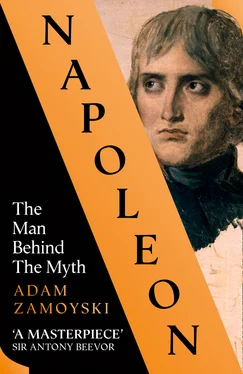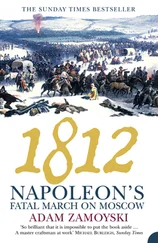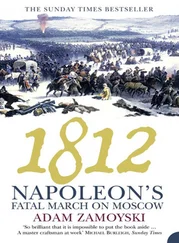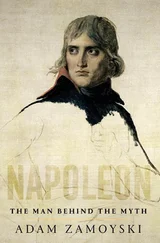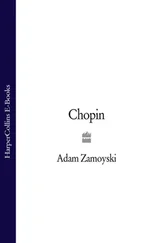It was not a happy family gathering. Letizia, who now met Josephine for the first time, saw no reason to change her views on the subject of what she considered her son’s disastrous marriage. The rest of the family concurred. For her part, Josephine was unimpressed by her in-laws. She had already met Lucien, whom she detested, and Louis, who did not like her and who since falling ill in February had turned into a hypochondriac prone to fits of depression. She found Joseph amiable enough, as he kept up a diplomatic show of friendliness towards her. It was her sisters-in-law who horrified Josephine. She appears to have believed the gossip that they had all slept with Bonaparte, and Paulette’s behaviour did little to gainsay it. She was stunningly beautiful, but her demeanour combined the pranks of a schoolgirl with the morals of a harlot. One moment she would be pulling faces and sticking out her tongue, mimicking and joshing distinguished personages, the next she would be fornicating behind a curtain with whichever young officer came to hand. Bonaparte resolved to put a stop to it by marrying her off to one of his most able officers, Victor-Émmanuel Leclerc, who was in love with her and could be counted on to keep her occupied. They were married on 14 June along with Élisa and Bacciochi. Soon after, Letizia departed for Ajaccio with the Bacciochis, and a little later Joseph left for Rome to take up the job of French ambassador to the Holy See which Bonaparte had obtained for him.6
To distract Josephine, Bonaparte arranged excursions to the lakes of Garda, Maggiore and Como, to Monza and Isola Bella. But he was himself not in holiday mood. More than one witness noted that he looked not only exhausted but also sad and often dejected, that on occasion his look was filled with melancholy and reflection, that he was sometimes sombre.7
He had experienced a great deal over the past year, and had learned much about himself and others, about war, politics and human affairs in general. Most of it, including the deceptions of Josephine, had lowered his opinion of human nature. He had debased his own standards and made compromises, in his relationship with his wife, his political calculations and his financial dealings. By the beginning of 1797 he was systematically siphoning off a considerable proportion of the resources being sucked out of Italy, and following the last campaign he had taken most, at least a million francs, of the wealth uncovered by his commissary Collot at the mercury mines of Idrija in Slovenia.8
In conversation with the agronomist André Thouin at Mombello one day, he said that once peace had been signed he would retire to the country and become a justice of the peace. There is no reason to doubt the sincerity of such sentiments, but they were no more than idle thoughts: in the uncertain state France was in, no government of whatever persuasion could tolerate the existence of a man of his capacities and following as an uncommitted private individual. In August, one of the army victuallers who had known him at Valence wrote to a friend that he could see ‘no end for him other than the throne or the scaffold’.9
Partly through his ambition and partly by force of circumstance, Bonaparte had become a figure famous throughout Europe. Between the spring of 1796, when he took command of the Army of Italy, and the end of 1797, no fewer than seventy-two pamphlets would have been published about him. People in the most distant parts of the Continent were either inspired or disgusted by him. Some feared him like the devil, others pinned their most ardent hopes on him. He was the source of fascination for young people of all classes and nations. But in France itself, he had become a political figure. Since the army had become an indispensable tool of government any popular general was, whether he liked it or not, a player in the power struggle which was going on over the future governance of France. Having proved his competence during the Vendémiaire rising, he was now both feared and needed by the Directory, and by every political faction in Paris.10
For a man not shy of saying what he thought of others, Bonaparte was surprisingly sensitive to criticism. He had recently come under attack from the right-wing press in Paris, which portrayed him as a Caesar only waiting to cross the Rubicon, as a Jacobin and a fiendish ‘exterminating angel’. He decided to respond in kind. On 19 July the first issue appeared in Milan of the Courrier de l’armée d’Italie , a paper ostensibly meant to keep the army informed, but whose primary aim was to work on public opinion in France, where it was disseminated. Other commanders had published papers to keep their troops informed, but this one was different. The main feature of the first number was a description of the parade held in Milan on the anniversary of the fall of the Bastille on 14 July. It abounded in touching vignettes, mostly apocryphal. ‘As the army marched past, a corporal of the ninth demi-brigade approached the commander-in-chief and said to him: “General, you have saved France. We, your children who share in the glory of belonging to this invincible army will make a rampart of their bodies around you. Save the Republic; may the hundred thousand soldiers who make up this army close ranks in defence of liberty.”’11
While Bonaparte made it clear that he and his army stood firm in support of the Republic, the Courrier subtly distanced him from the Directory, which, by contrast with the pure republicanism of the Army of Italy and its commander, was made to appear weak and corrupt. A second journal, which came out once a décade (ten days – the revolutionary week) under the editorship of the moderate constitutionalist royalist Michel Regnaud de Saint-Jean-d’Angély, printed articles ‘correcting’ ‘false’ impressions of Bonaparte held in Paris and building up the image of him as a miracle-performing hero.
This positioning had a great deal to do with recent events in France, where the April elections had returned a majority of right-wing deputies to the two chambers, setting these in conflict with the Directory. Barras resolved to cow them by force, and summoned General Hoche from the Army of the Sambre-et-Meuse under pretence of giving him the job of minister of war. On 16 July, as his troops crossed the sixty-kilometre exclusion zone supposed to keep the military away from the institutions of government, the chambers denounced the action and the attempted coup was blocked. Barras and his fellow Directors then concentrated on winning over those troops legally stationed within the zone, but they needed a popular general to lead them. Bonaparte wrote to the Directory on 15 July that the Army of Italy was alarmed at news of a slide to the right in Paris and hoped they would take energetic steps in defence of the Republic, assuring them of its support. He had cause for anxiety.12
When they invaded Venetian territory in May, his troops had arrested a royalist agent, the comte d’Antraigues, and from him and the papers found on him, Bonaparte discovered that Generals Pichegru and Moreau were involved in a plot to overthrow the Directory and bring back the Bourbons, a plot which specifically involved killing him. This explained why the Austrians were dragging their feet over concluding peace.13
The preliminaries signed at Leoben were just that, and a treaty still needed to be negotiated. The Austrian foreign minister Baron Thugut sent the Neapolitan ambassador in Vienna, Marchese Gallo, to negotiate this on his behalf, and when he met Bonaparte in Milan in May they agreed to conclude rapidly. But Thugut was in no hurry. At the last moment Bonaparte had insisted that France be allowed to keep all her conquests on the left bank of the Rhine, which meant that the territory’s rulers would have to be compensated. Since their lands had formed part of the Holy Roman Empire, the emperor would need to sanction this and make whatever compensations were necessary. It was also hoped that some of Austria’s allies in the anti-French coalition would be persuaded to accede to the settlement, which would be finalised at a congress to be convoked at Rastatt at the beginning of July. The possibility of a restoration of the Bourbon monarchy radically altered the situation; Louis XVIII would be only too happy to recover France reduced to her old frontiers and let northern Italy revert to Austria. When all this dawned on Bonaparte, he was outraged.14
Читать дальше
